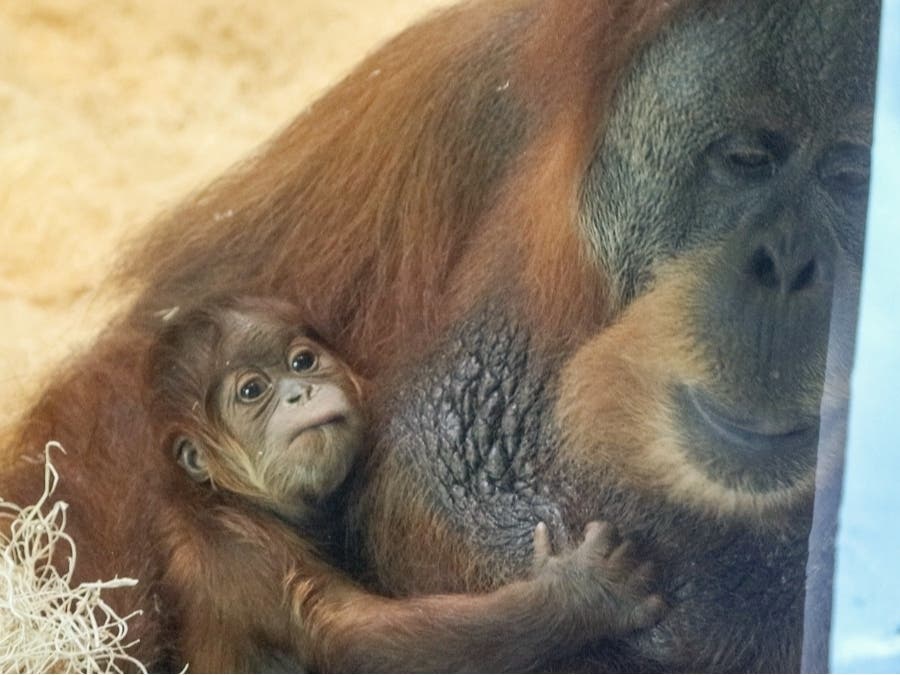Kids & Family
Endangered Orangutan Born At Philadelphia Zoo
The new baby was born to the Zoo's 31-year-old female Tua and 28-year-old male, Sugi, on June 26. A name has not been determined.

PHILADELPHIA — The Philadelphia Zoo welcomed a new member of its family recently with the birth of a Sumatran orangutan.
Born to the Zoo’s 31-year-old female Tua and 28-year-old male, Sugi, on June 26, the new ape's sex has not been determined and a name has not been bestowed on the little orangutan.
This marks the first birth of the endangered species at the zoo in 15 years, and a significant birth to the population of these animals.
Find out what's happening in Philadelphiawith free, real-time updates from Patch.
Officials said the infant looks strong, and Tua is working to be an excellent mother, nursing and holding the baby at all times.
Tua and the baby are currently setting their own schedule for when they will be visible to guests. They have access to their indoor habitat where visitors may get a glimpse of them but also have access to their bedroom space to spend time alone.
Find out what's happening in Philadelphiawith free, real-time updates from Patch.
The Zoo is planning to have their big public debut sometime in mid-August.
The baby’s birth is a part of the Association of Zoos and Aquariums Species Survival Plan breeding program to ensure the survival of Sumatran orangutans and maintain a genetically diverse population.
Sumatran orangutans are listed as critically endangered by the International Union for the Conservation of Nature, with a population of 14,00 left on the island of Sumatra. Primary threats include deforestation and population fragmentation.
"It is a joy to be able to share this wonderful news with the greater Philadelphia region and the world," Vice President of Animal Well-Being and Conservation Rachel Metz said. "This critically endangered species is rapidly losing habitat largely due to deforestation as a result of an increased demand for logging, palm oil, and other natural resources located in their habitats. Working with the Association of Zoos and Aquariums to maintain a genetically healthy population in human care is vital to the survival of this species."
"Our entire Zoo Community and those that work closest with our orangutans are thrilled to watch Tua become a mother again and watch this baby grow," Andrew J. Baker Curator of Primates and Small Mammals Michael Stern said. "It is an honor to care for and work with these animals, and we all feel the magnitude this birth has in the protection of this species."
Get more local news delivered straight to your inbox. Sign up for free Patch newsletters and alerts.